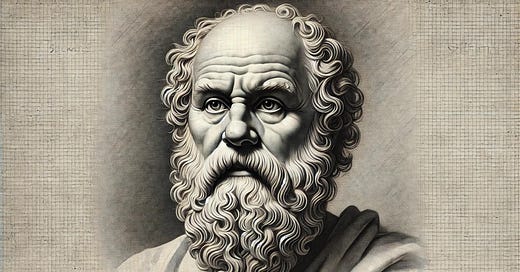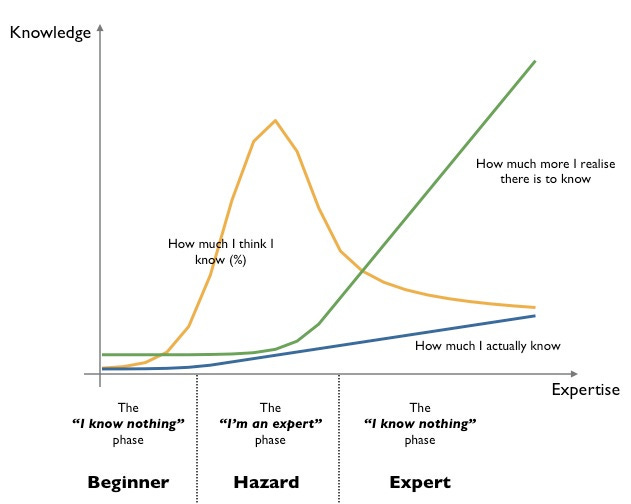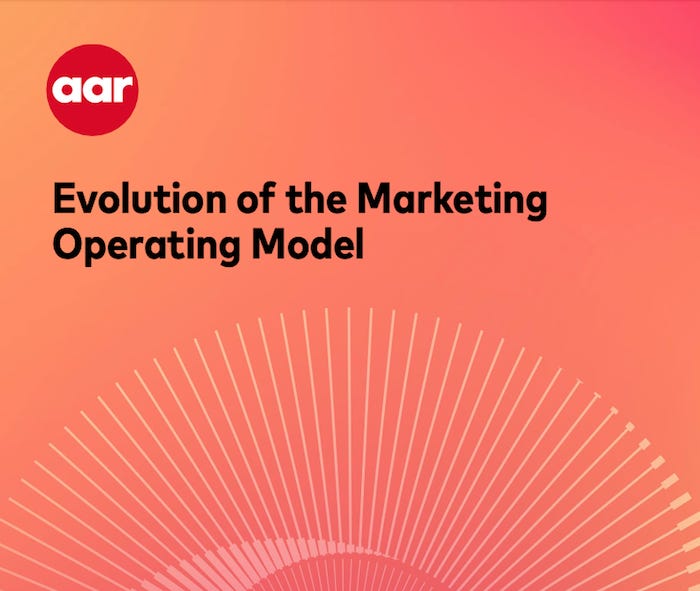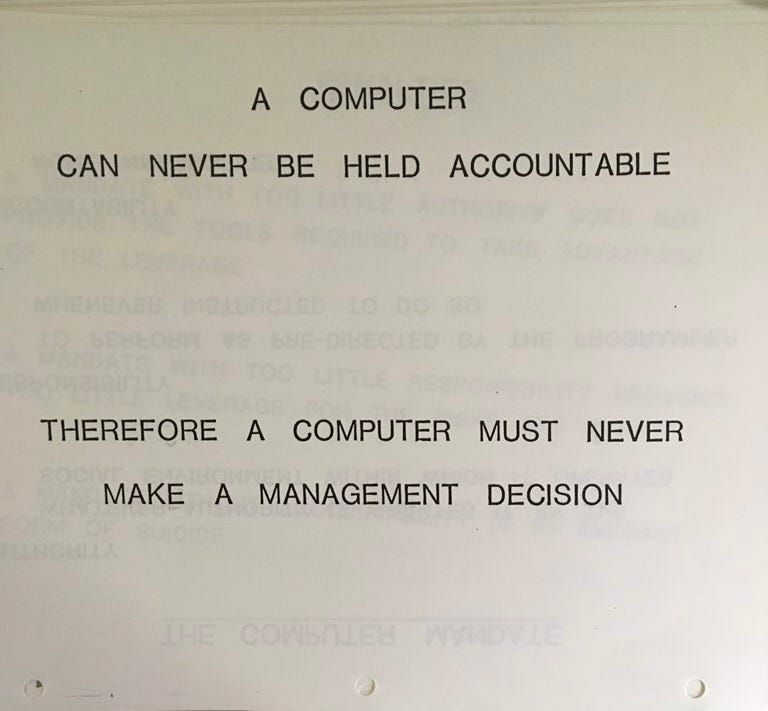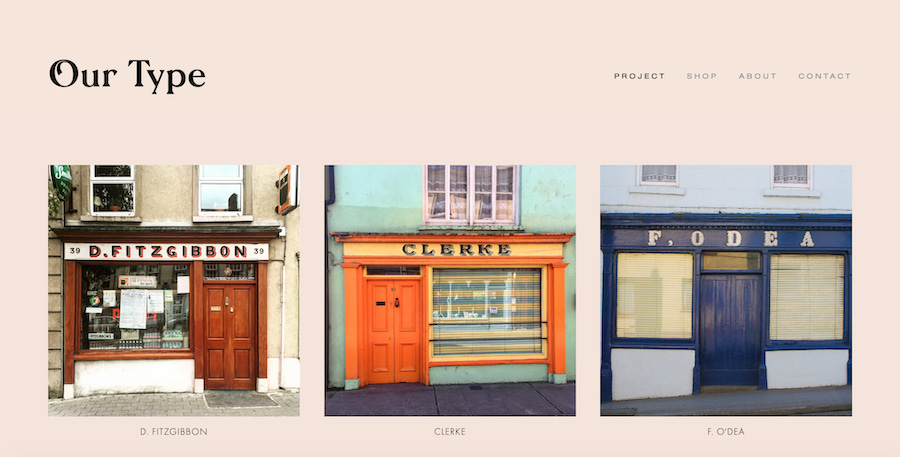Fish Food: Episode 630
Why critical thinking is so needed in the age of AI, a brand new report into changing marketing operating models, deep research, and martech stacks as solar systems
This week’s provocation: Why critical thinking is even more important in the age of AI
I was really struck by this post from Dr Philippa Hardman who has done a fantastic job of reviewing five recent studies on the impact of Gen AI on learning. Many have hailed the potential of generic LLM tools in supporting learning but as Dr Phil points out, an increasing body of research suggests that generic AI models can be suboptimal, and even detrimental to the development of knowledge and skills. Yet if they are used in a structured way they can also improve understanding and problem-solving skills:
One review of a number of studies into this area noted that ‘ChatGPT had inconsistent effects on higher-order cognitive processes like critical thinking. Some studies even reported reduced critical thinking skills when ChatGPT was used without structured guidance’.
In a study relating to teaching people how to code, an over-reliance on LLMs for code generation and debugging was found to hamper foundational learning and problem-solving skills, particularly for beginners. But advanced learners could actually enhance their understanding by using LLMs for tackling complex problems.
Another study that looked at Maths tutoring found that using LLMs to generate exercises more customised to specific user’s weaknesses and using an iterative feedback approach significantly enhanced learning outcomes and long-term knowledge retention
A fourth study looked specifically at how AI tool usage influences critical thinking skills. It found that ‘cognitive offloading’ (getting the AI to come up with an answer rather than using our brains) strongly correlates with reduced critical thinking: ‘Delegating tasks to AI tools frees cognitive resources but risks diminishing engagement in complex and analytical thinking.’
The TLDR of Dr Phil’s post is that whilst generic generative AI tools improve task-specific outcomes, an over-reliance on them can ‘undermine critical problem-solving skills necessary for independent learning’. As AI tools become better and better, and we rely on them more and more, the risk is that this becomes worse. To avoid this detrimental impact on critical thinking she has a bunch of sensible recommendations including ensuring AI tools are part of a structured learning process that promotes deeper engagement rather than simple task completion, integrating ChatGPT in ways that support (but do not replace) foundational skills development, pairing AI tools with activities that require students to reflect on what they’ve learned and evaluate the AI’s role in their understanding.
With the rapid development and expansion of AI capability, it feels as though we’re at a critical juncture with critical thinking. It’s a real red pill blue pill moment. Using generic generative AI tools in the wrong way (heavy reliance, over dependence, lazily having the AI think for us) could lead to a widespread and long-term decline in our ability for deep reflection, logical enquiry, and thinking critically. Using them in the right way however, could result in a major boost for learning, cognitive reflection and evaluation.
Why does critical thinking matter, particularly now? The obvious answer to this question relates to the potential for misinformation to polarise our world (particularly given recent Meta moves) and the heightened need for critical thinking in dealing with the complex challenges we face in the modern world. AI doesn’t (yet) truly think, but it knows how we think, since it replicates what humans have produced, good and bad. Humans rely on cognitive ease and shortcuts. Critical thinking is necessary to avoid taking AI outputs at face value just because they ‘feel’ right. We must learn to interrogate why something feels true, otherwise we risk mistaking coherence for truth.
So how can we ensure that our use of AI tools will not erode our ability to think critically? The father of critical thinking, Socrates, warned about the illusion of knowledge or the belief that we know something when we actually do not. He is attributed (by Plato) as saying ‘I know that I know nothing’. This was a revolutionary idea. Socrates believed that true wisdom came not from having answers but from recognising how little we truly know. Intellectual humility allows us to listen deeply, question assumptions, and learn from anyone.
It’s tempting to believe that AI can provide us the answer to almost any question that we have. Critical thinking helps us to understand the limits of our understanding, and through this we cultivate humility, open-mindedness, receptivity to new ideas and perspectives.
In his excellent radio series on The Long History of Ignorance Rory Stewart talks about how the illusion of knowledge can be more dangerous than ignorance itself. AI models, he says, in their apparent omnipotence generate results with statistical confidence but they lack epistemic humility - they do not understand their own ignorance. Humans must therefore develop an acute awareness of what machines (and we) don’t know. In an era of hyper-information, the skill of curating our ignorance, knowing what to ignore, question, and remain uncertain about, becomes as vital as the ability to learn.
Socratic method encourages us to uncover truth, question assumptions, and embrace the discomfort of not knowing. It’s a conversational journey, leading us toward clarity, wisdom, and sometimes, the humbling realisation of ignorance. It can sharpen problem-solving by breaking problems into smaller questions and exploring perspectives, allowing for creative, well-reasoned solutions. By embracing questioning, seeking clarity, and welcoming the discomfort of doubt, we unlock a deeper understanding of ourselves, others, and the world. Socratic Method, isn’t about answers. It’s about asking questions so sharp and relentless that they lay bare the assumptions we don’t even realise we’re carrying.
So my answer to the question about how we can use AI tools in ways that don’t erode critical thinking is to see them as tools for exploration and reflection, rather than a machine for answers. I think AI has the potential to be the best thinking partner we’ve ever had - some practical thoughts include:
Exploration: Rather than treating generative AI tools as we would a search engine we need to treat them more as a research assistant - exploring topics rather than looking for an immediate answer. Taking a more structured approach can be useful - going back-and-forth between the human and AI to dive deeper, finesse, understand, asking it to seek out unique perspectives, and assess and review based on specific criteria that we have determined. There are some useful techniques outlined in my earlier post on using GenAI in strategy, research and insight.
Challenge: Using generative AI tools as a way to challenge our own assumptions and open up new lines of thinking - I wrote about a few practical ways to do this in a previous episode. Ask it to critique your own thinking or arguments to find the weaknesses. Ask it to check for biases that may be included in the outputs. Ask it to show you connections that most people miss or things that are non-obvious (in the same way that Faraday questioned what he couldn’t see)
Pairing perspectives: Using the tools to juxtapose different perspectives and views to create a better foundation from which to draw conclusions. Asking them for the counterpoint to any recommendation it has come up with to explore alternatives. Asking it to generate unconventional perspectives and show the reasoning behind them. You can deliberately ask it to compare and contrast multiple sources, or identify gaps, or highlight conflicting viewpoints.
Reflection: Reflecting on the answers that AI tools are creating. Asking the tool to show how it came to the conclusion it did (if you turn on the DeepThink button in DeepSeek it literally shows you how it’s thinking about the question you’ve asked it, enabling you to evaluate and question the AI’s response). Asking the AI to mark its own output, define improvements, and then using the tool to explore those improvements.
Simulated Conversations: Practice debating or negotiating by role-playing with the AI. An example might be: ‘Simulate a debate where you argue in favour of universal basic income, and I’ll argue against it.’
Reverse Thinking: Challenge the AI to argue against your idea or propose the worst possible solution to a problem, helping you to identify weaknesses in your thinking and refine your approach.
Knowledge building exercises: Ask the AI to generate practice problems, case studies, or scenarios to hone specific skills or help you to apply learning
Idea refinement: using the AI to enhance and build on your own ideas, to generate discussion points relating to ideas, to polish rough ideas, to drill down deeper into underlying concepts or causes.
By design: Incorporating features that make it easier to truly understand something rather than simply take it at face value. The integration of sources is useful (I often go back and forth between the AI and its sources to see what it’s missed), DeepSeek’s DeepThink feature as well. Dr Phil talks about taking a ‘pedagogy first’ approach to designing tools, and features that guide users to analyze and question the information provided by the AI. We need to be designing tools that support, but do not replace, foundational knowledge building
I passionately believe that the value of thinking is not just in arriving at answers, but in the process itself. If we delegate thinking to machines, we risk intellectual stagnation. In the age of AI, we need to think more, not less.
Socrates image created in Dalle-3, chart image: Simon Wardley
If you do one thing this week…
This week saw the launch of a major piece of work that I’ve been working on over the past few months with the AAR, relating to how Marketing Operations Models are changing. A good operating model is the sum total of HOW marketing gets delivered and how strategy is linked to execution, and we’ve looked at what’s happening right across 4Ps: People (org design, skills, resourcing, culture), Partners (in housing, agency partnerships and selection), Process (ways of working, governance) and Platforms (Martech, Generative AI).
This work is based on a CMO survey, and interviews with CMOs from a diverse set of businesses including Tesco, Ford of Europe, PwC, Specsavers and many more. It was one of the most fascinating research projects that I’ve been involved in - there is just so much change going on.
Too many interesting findings to list here but the report that I authored is now available for download from the AAR site. Love to know what you think.
Links of the week
More agentic AI - this week OpenAI launched an autonomous ‘deep research’ assistant, which will be available as a button in ChatGPT. It’s not publicly available yet but the demo video showed it analysing changes in the retail market and it looks like it will be very useful. Azeem Azhar had some useful insights into how good it is here. They’ve also just quietly demoed a new AI ‘sales agent’. Vertical, task oriented AI agents will be big this year.
This week I wrote about the DeepSeek founder saying that they explicitly hire younger, less experienced people and why becoming more experienced (and older) doesn’t necessarily mean that you stop exploring
Related to my provocation this week, I liked Antony Mayfield’s point about how, in order to get the most out of AI tools, we need to understand how WE think (individually, not just collectively): ‘The question isn’t “what can AI do”? It’s “what can I do with AI”?’
Here’s a huge stats dump from Datareportal aka their latest global overview report, which contains just about any stat you could wish for on digital media consumption globally
‘Older listeners have lower skip rates because they put themselves in situations where they don't need to skip songs’. Another excellent dive into how our music consumption changes as we grow older by Daniel Parris (building on his initial look at how music discovery changes with age)
I liked Frans Riemersma’s idea of martech stacks as solar systems - the Sun (backbone systems), planets (foundation systems that enable core capabilities), and moons (enabling outcome-driven tactical capabilities)
And here’s a punchy article from Amy Kean calling BS on the ad industry’s DEI initiatives
Quote of the week
A legendary page from an internal IBM training in 1979. Still very appropriate today in the age of AI. HT Simon Willison
And finally…
I love sites that feature people’s quirky projects and this one is a gem. Our Type is an ‘ongoing photographic project documenting the disappearing shopfronts, signage and typography of Ireland's towns and villages’, run by Trevor Finnegan, a designer and photographer based in Dublin (HT Bernadine Brewer). Says Trevor…‘Across Ireland, we have many towns and villages that retain their rich traditions of vernacular signage. Unfortunately, the fate of these shopfronts is being threatened by the uniformity of the corporate multi national stores, which ignores and subverts local history and tradition’. It reminded me of Emily Webber’s similar London Shopfronts project.
Weeknotes
This week I ran a session for my Diageo client, kicked off a project for Canon, did a couple of trends webinars for Econsultancy and moderated the AAR report launch event at my new favourite venue - the Regent Street Cinema which I had no idea existed - it’s the oldest independent cinema in the UK (opening in 1848) and it's known as the birthplace of British cinema.
Thanks for subscribing to and reading Only Dead Fish. It means a lot. This newsletter is 100% free to read so if you liked this episode please do like, share and pass it on.
If you’d like more from me my blog is over here and my personal site is here, and do get in touch if you’d like me to give a talk to your team or talk about working together.
My favourite quote captures what I try to do every day, and it’s from renowned Creative Director Paul Arden: ‘Do not covet your ideas. Give away all you know, and more will come back to you’.
And remember - Only dead fish go with the flow.


